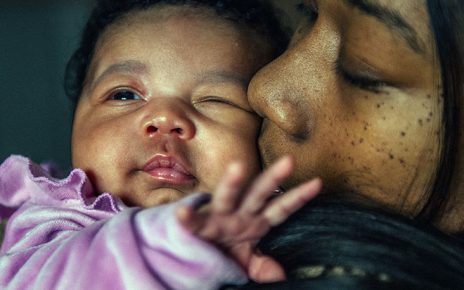Australian woman Thessy Kouzoukas recently shared a photo capturing the brutal reality of an often silent disease – endometriosis – and it has resonated with hundreds of thousands, if not millions, of women all over the world.
The creative director and co-owner of fashion brand Sabo Skirt posted the side-by-side images on Instagram – one showing her incredibly bloated stomach after a cyst in her ovary ruptured and the other showing it after starting on a drug called Synarel, which she says has stopped her hormone production and sent her into menopause at the age of 27.
“This is quite shocking to people. This is me. This is endometriosis,” she wrote in the post. “I never intended to share these photos hence why I’m naked, but my god I can’t believe the amount of DM’s [sic] I’ve received from girls who have endo too and feel alone.”
Thessy spoke to Women’s Health about what prompted her to post the confronting images, which have since gone viral.
“I had these photos in my camera role for personal reference, to show my doctor, and I thought you know what – you can actually see the effects of endo here, which is so rare for endo, it’s something that’s unseen and it’s silent and no one really understands because you can’t see it,” she said.
“But with these photos, they’re so shocking and people don’t expect to see me in that state, so I thought for all those girls who are feeling alone and all those who don’t understand, I just thought I’m going to post it and try to inform as many people as I can.”
Endometriosis is a common disease in which tissue from inside the womb grows outside of it, resulting in often debilitating pain as well as fertility issues. Endometriosis Australia says that 10% of women are affected by the disease but many are not properly diagnosed until later in life due to the nature of the symptoms.
That was the case for Thessy.
“As a young teenager I just thought period pain was normal, no one really told me about endometriosis so I thought I had a low pain threshold maybe, or that I’m a bit of a drama queen – that’s what people told me,” she said.
But after taking a break from the pill, which she initially went on a decade ago to deal with her painful periods, her symptoms came out in full force.
“I would have to leave work early, I’d be in bed on heavy pain meds which I couldn’t go a day without taking. Everyday I was struggling so I knew something was wrong,” she told Women’s Health.
“I was getting a bit frustrated that I was always in pain so I went to my doctor and they sent me to a specialist and I got some scans, some ultrasounds done, of my uterus and they found a 9cm cyst in my right ovary which then needed immediate attention because they didn’t know the nature of the cyst.”
“So they did a laparoscopy, which is actually the only way you can detect endometriosis, it doesn’t come up in a scan or a blood test or any other sort of procedure except for the laparoscopy.”
“I was quite relieved to know that I did actually have something that wrong with me, that I wasn’t going crazy with this pain.”
Thessy will soon undergo surgery to remove new cysts that have developed, after a failed attempt at IVF to create backup embryos in case her ovaries are damaged during the operation.
Having recently gotten engaged, fertility issues, common with endometriosis, are certainly on her mind.
“There is a strong link between endometriosis and fertility issues, in saying that there have been many cases where women with very bad endo have fallen pregnant so I guess I’m just focusing on that thought and trying to stay as positive as possible,” she said.
“I really do want a family so this operation I’m getting will increases my chances of falling pregnant so I have that in the back of my head and I’m confident that one day I will fall pregnant.”
“I think that a lot of this disease is mentality, you’ve got to be positive and keep on top of your negative thoughts.”
She said it’s been amazing to see the response to her experience.
“It’s been really nice, I’m still trying to get through all the DMs I have received, I got over a thousand of women saying thank you or telling me their stories,” she said.
“It’s really nice to see that we can all support each other and that we’re not alone, it’s amazing to see that there are other girls out there that care as well.”
If you’re experiencing painful periods or any other symptoms speak to a medical professional.
Source: Read Full Article




